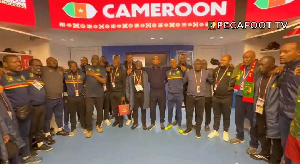Today, January 20, 2015, is 11 months since Mama Abakaï, mayor of Lagdo and President of the CPDM section of the same locality, was captured and made hostage along with 15 others in the surrounding area of Garoua-Boulaï.
While families are still anxiously awaiting the release of their relatives, 12 people, suspected of an active role in the kidnapping of the hostages in Lagdo, appeared on January 8, 2016, before the Garoua military court.
Mohamadou Danlamy, main accused, is currently in detention at the Garoua prison and his accomplices, were charged with "intimidation of the population, provoking a state of terror, coercion of a victim to perform or abstain from performing at adopting or abandon a position."
According to a source close to the military court, Justice has evidence that overwhelms the suspects.
"After several months of investigation and testimony, serious suspicions are weighing on these men. Findings revealed that they had numerous contacts, especially with the kidnappers before and after the kidnapping of the hostages.
In particular, they helped provide information to captors. Justice is now working to demonstrate any involvement in this matter and eventually it is hoped we will be able, at the end of the procedure, to have the elements release the hostages," said our source. The case was remanded to February 3 for opening the debate.
Visiting Garoua on October 1, 2015, the Delegate General for National Security, Martin Mbarga Nguele, during a working meeting he held with the administrative and police authorities in the northern region, had discussed the situation of the Lagdo hostages.
After this working session, Nguele stated that the police knew "where the hostages and their captors were. But it turns out that they (hostages) are in a foreign territory, and they (police) cannot act, "adding that" the problem is because Cameroonians cannot give up their nationals wherever they are."
Actualités of Wednesday, 20 January 2016
Source: L'Oeil du Sahel













